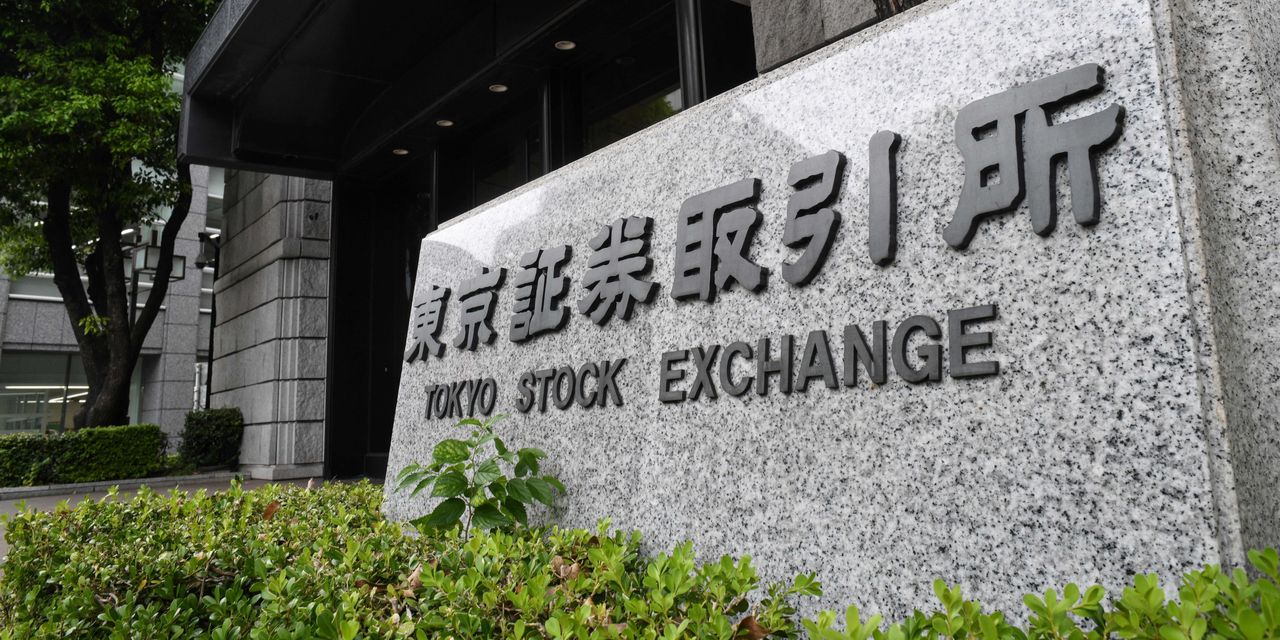TOKYO — Asian shares rose Thursday, boosted by Wall Street’s return to its highest level in more than a year after a report showed U.S. consumer inflation cooled a bit more than expected last month.
Japan’s benchmark Nikkei 225
NIK,
rose 1.3% in morning trading. Australia’s S&P/ASX 200
XJO,
added 1.4% and South Korea’s Kospi
180721,
jumped nearly 1.0%. Hong Kong’s Hang Seng
HSI,
surged 2.4%, while the Shanghai Composite
SHCOMP,
gained 0.8%. Benchmark indexes in Singapore
STI,
Taiwan
Y9999,
and Indonesia
JAKIDX,
gained.
Investors were watching for China’s monthly trade data to see how the world’s largest economy is faring after the end of pandemic controls late last year.
On Wall Street, the S&P 500
SPX,
rose 0.7% to 4,472.16 to reach its strongest closing level since April 2022. The Dow Jones Industrial Average
DJIA,
rose 0.3% to 34,347.43, and the Nasdaq composite
COMP,
gained 1.2% to 13,918.96.
Most stocks rose, from flashy Big Tech behemoths to staid utility companies, though the gains faded a bit as the day progressed.
The U.S. government’s latest update on inflation showed that consumers paid prices for gasoline, food and other items that were 3% higher overall in June than a year earlier. That’s down from 4% inflation in May and a bit more than 9% last summer. Perhaps more importantly, it was a touch lower than economists expected.
High inflation has been at the center of Wall Street’s problems because it’s driven the Federal Reserve to jack up interest rates at a blistering pace. Higher rates undercut inflation by slowing the entire economy and hurting investment prices, and they’ve already caused damage to the banking, manufacturing and other industries.
Traders remain nearly convinced the Fed will raise the federal funds rate at its meeting in two weeks to a range of 5.25% to 5.50%, which would be its highest level since 2001. But expectations are also climbing for that to be the final increase after rates started last year at virtually zero.
“They’ll probably still pull the trigger on a hike, but it will be based on symbolism more than substance,” said Brian Jacobsen, chief economist at Annex Wealth Management. He pointed to another report earlier this month that showed a slowdown in U.S. jobs growth, which could also take some pressure off inflation.
Treasury yields tumbled in the bond market after the cooler inflation data pushed traders to trim bets for Fed action later this year.
The 10-year Treasury yield fell to 3.86% from 3.98% late Tuesday. It helps set rates for mortgages and other important loans.
The two-year Treasury yield dropped to 4.73% from 4.89%. It tends to follow expectations for the Fed more closely.
In energy trading, benchmark U.S. crude
CLQ23,
rose 20 cents to $75.95 a barrel. Brent crude
BRNU23,
the international standard, gained 24 cents to $80.35 a barrel.
In currency trading, the U.S. dollar
USDJPY,
edged up to 138.51 Japanese yen from 138.41 yen.
Read the full article here



